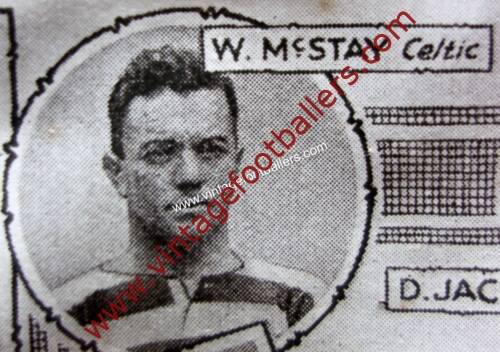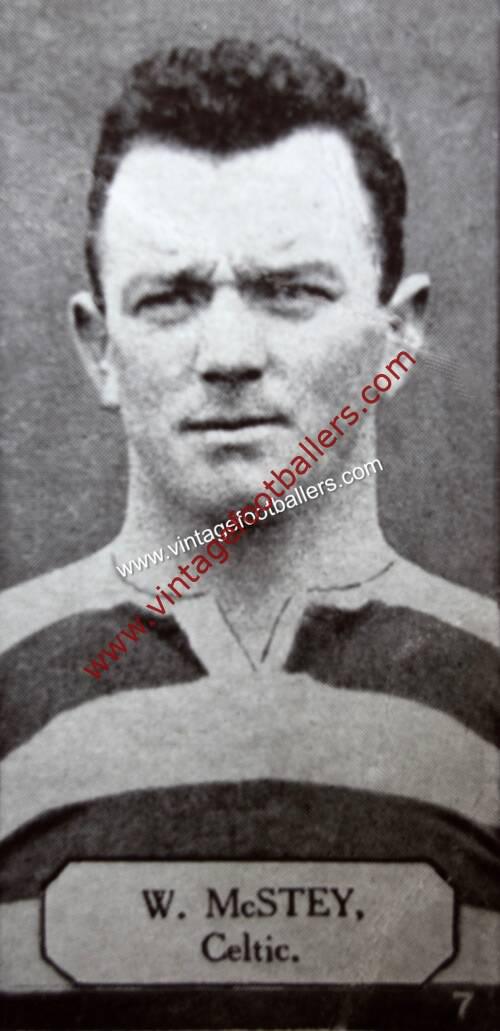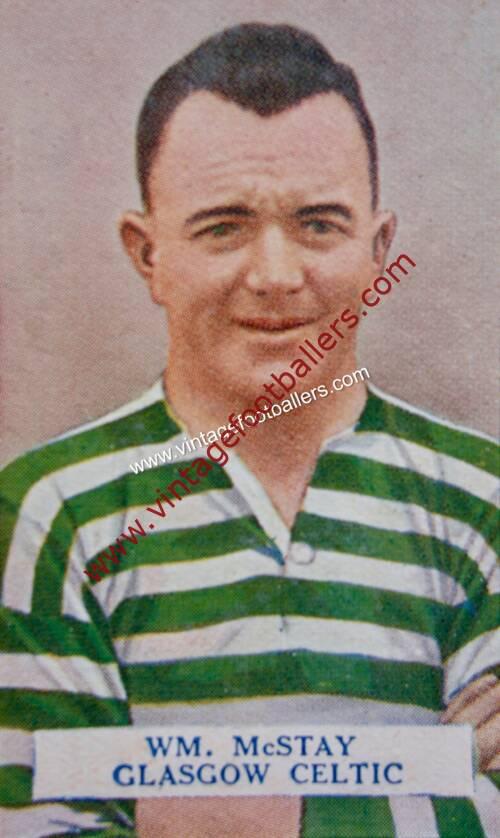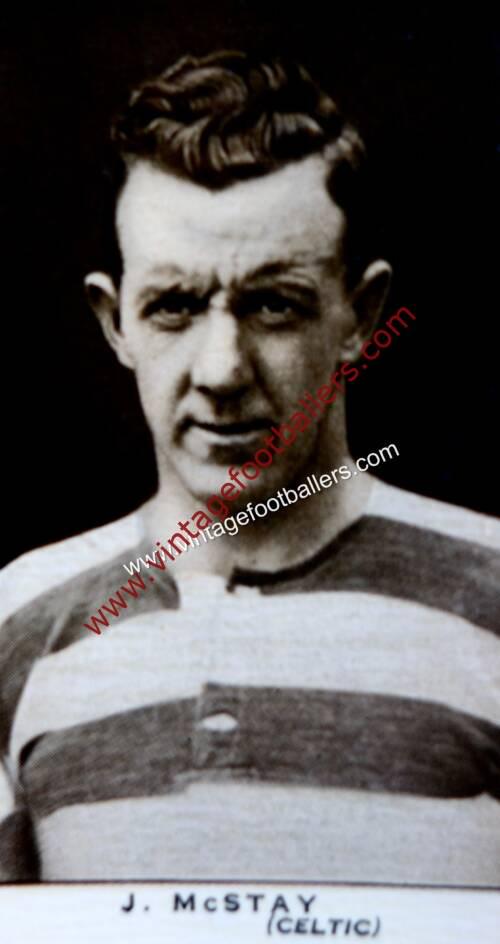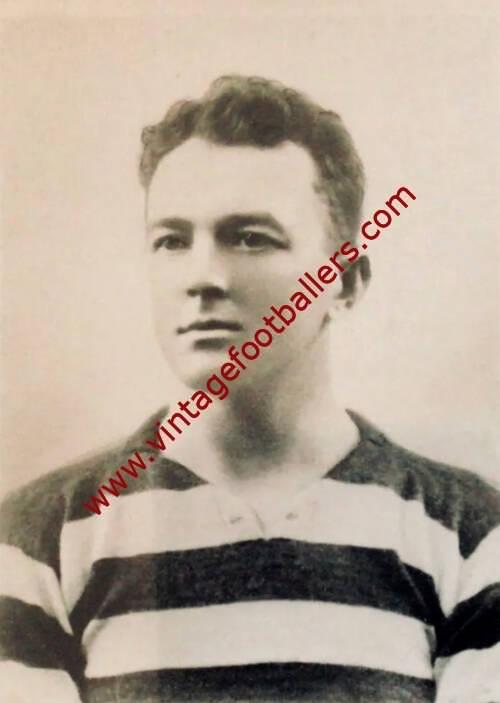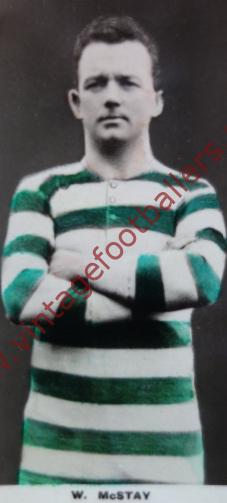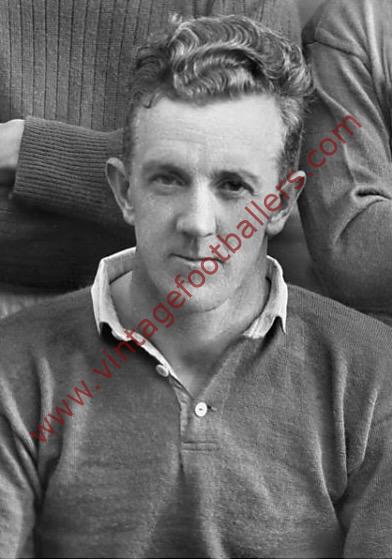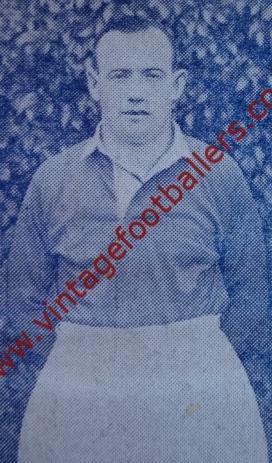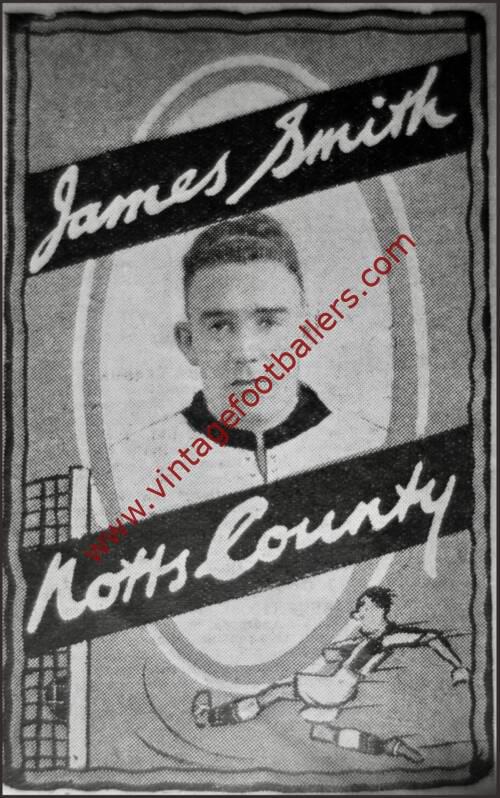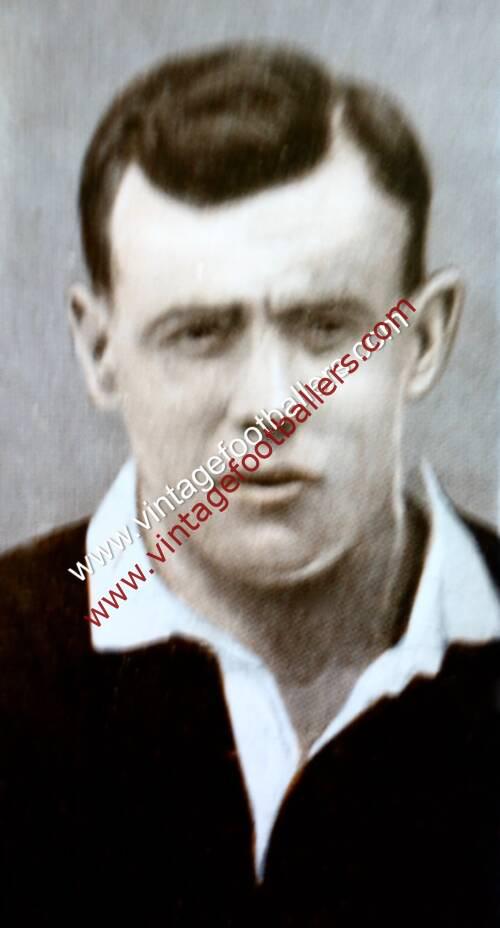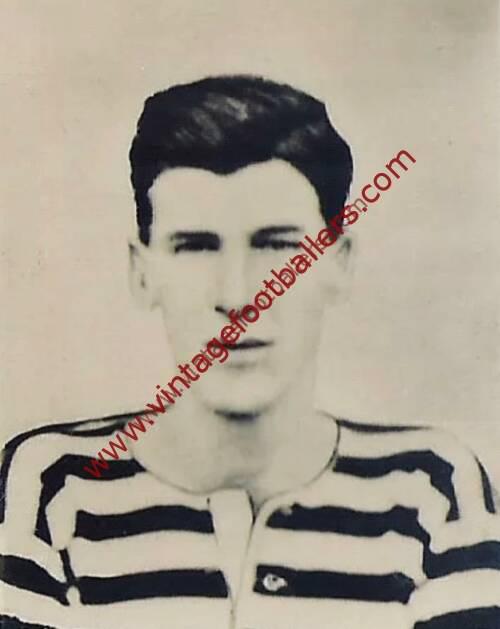Please choose your photo size from the drop down menu below.
If you wish your photo to be framed please select Yes.
Note: 16″x 20″not available in a frame.
Images can also be added to accessories. To order please follow these links
£8.95 – £49.95
Please choose your photo size from the drop down menu below.
If you wish your photo to be framed please select Yes.
Note: 16″x 20″not available in a frame.
Images can also be added to accessories. To order please follow these links
Born at Netherburn near Dalserf, Lanarkshire, initially a left back, Jimmy McStay had played junior football for Larkhall Thistle and signed for Glasgow Celtic in November 1920 from the Royal Scots Fusiliers and made his Scottish League debut in a 1-0 victory at Clyde in November 1922. Switched to centre half in 1924, he found his calling in the Celtic line up and McStay took to his new position like a natural, such that before long he had gone from being on the verge of a free transfer to becoming a vital member of the team. His no nonsense approach to his job made McStay one of the most effective defenders in the game, despite never shouting or intimidating opposition players. He was not flashy but he did the simple things very well and he became a model of consistency with a string of excellent performances.
His most successful season was the 1925-26 League title winning season, which saw McStay play in every competitive match that season, and they also lost in the Scottish Cup Final to St Mirren. He succeeded his brother Willie as the Celtic captain in 1929 and he helped guide Celtic to further Scottish Cup glory in 1931 and again in 1933 with wins over Motherwell on both occasions, the last two of his 5 Scottish Cup wins. In November of that year, as captain of the Scottish League, McStay led his side to a famous 4-3 victory over their English counterparts at Celtic Park in a match where Everton’s legendary forward Dixie Deans was marked out of the contest by a brilliant performance from the Celtic man, although despite representing The League three times he was never selected for the full Scotland team, his other appearances also coming against The Football League in March 1926 and November 1928.
He was eventually freed by the club in 1934 and went on to join Hamilton Academical. By then McStay had made 472 League & Scottish Cup appearances for The Hoops and scored 8 goals.
In 1938 he became manager of Alloa Athletic, although the Second World War quickly intervened. When Celtic manager Willie Maley, at the grand age of 72 was belatedly relieved of his post as manager after 51 years with the club, in his place McStay was brought in as Celtic’s manager in February 1940. On leaving Alloa to take up the manager’s post at Celtic, the vice-president of Alloa said:
“He is a man in a thousand. At Alloa he has had our complete confidence right from the beginning. He picked the team himself, and was never subjected to any interference in his work from the Board”.
He remained in the role throughout the War years, being eventually dismissed in July 1945. He was subsequently manager of Hamilton Academical from 1946 to 1951.
He was the younger brother of fellow Celtic star Willie McStay, and his great nephews Paul and Willie also subsequently played for Celtic in the 1980’s and 1990’s.
| Weight | N/A |
|---|
